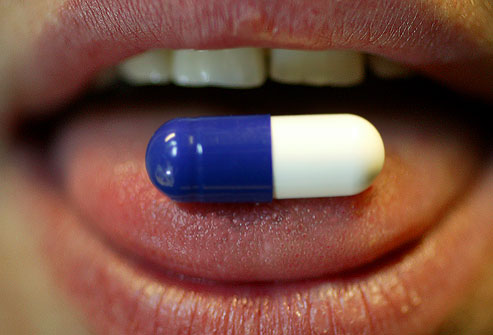 If you’re taking medications for certain health conditions, it may not have crossed your mind that they can also impact your oral health. After all, medications are supposed to bring equilibrium back to your system, not stir things up, right? Truth is, a variety of prescribed medications can affect your teeth.
If you’re taking medications for certain health conditions, it may not have crossed your mind that they can also impact your oral health. After all, medications are supposed to bring equilibrium back to your system, not stir things up, right? Truth is, a variety of prescribed medications can affect your teeth.
- Antihistamines may cause dry mouth syndrome, which can lead to sore gums, making the mouth more prone to infection.
- Contraceptives and blood pressure medications may cause mouth sores, gum inflammation and discoloration.
- Blood thinners can interfere with your ability to form blood clots or cause heavy bleeding after a tooth extraction.
- Anti-seizure medications can cause an overgrowth of gum tissue (gingival hyperplasia) and make it difficult to practice good oral hygiene.
When you’re taking medications and start taking other medications — whether prescribed, over-the-counter or illegal – it can change the effects of both the original and the new medications. Simply put, when certain drugs interact, they may increase or decrease the effects or produce another, unintended effect. This is why it’s so important to keep your dentist informed about all the medications you take; any teeth medications you are prescribed will take this into consideration.
Novy Scheinfeld, DDS, PC
290 Carpenter Drive, 200A
Atlanta (Sandy Springs), GA 30328
404-256-3620
Related articles
- Dentist Sandy Springs: Top 4 Reasons Not to play hooky from Your Dental Cleanings (therightsmile.wordpress.com)
- Dentist Atlanta: How Often Should I See the Dentist? (therightsmile.wordpress.com)
- Dentist Serving East Cobb Named ‘America’s Top Dentist’ in 2011 (therightsmile.wordpress.com)
- Dentist serving Dunwoody: 8 Windows your overall health sees through dentistry. (therightsmile.wordpress.com)
- Dentist Serving Roswell – 4 Steps to Promoting Good Oral Health (therightsmile.wordpress.com)
- Alpharetta Dental: How Often Should I See the Dentist? (therightsmile.wordpress.com)

